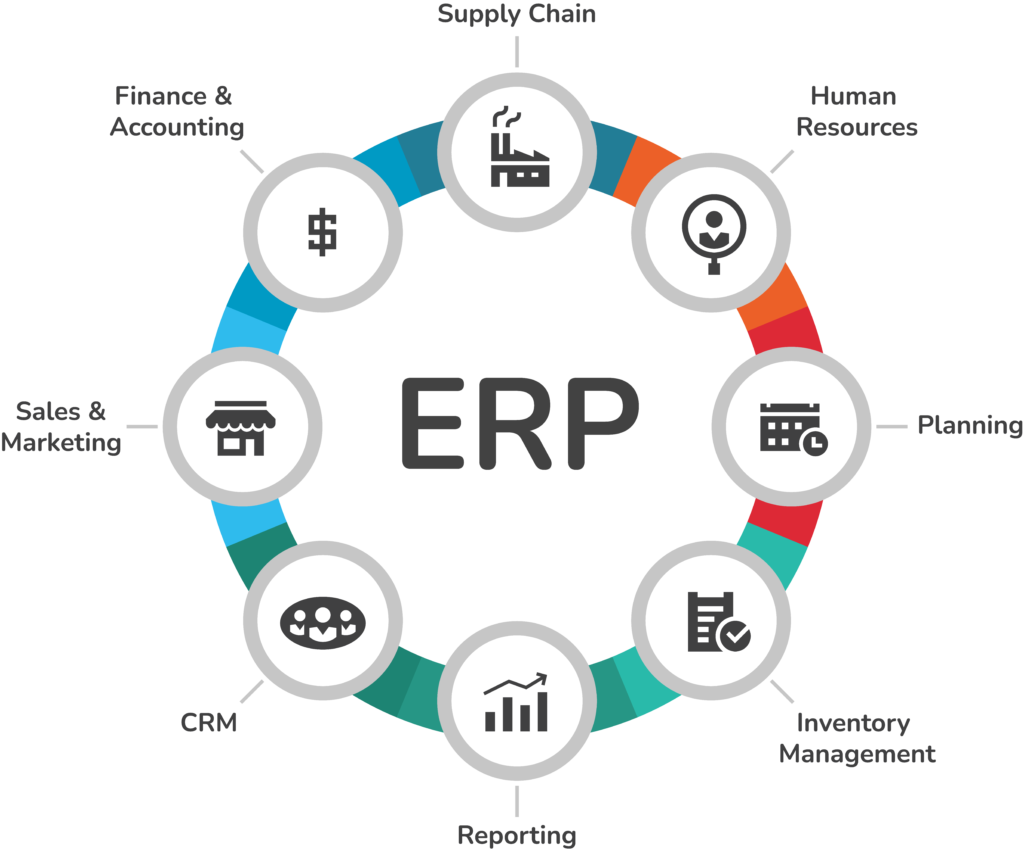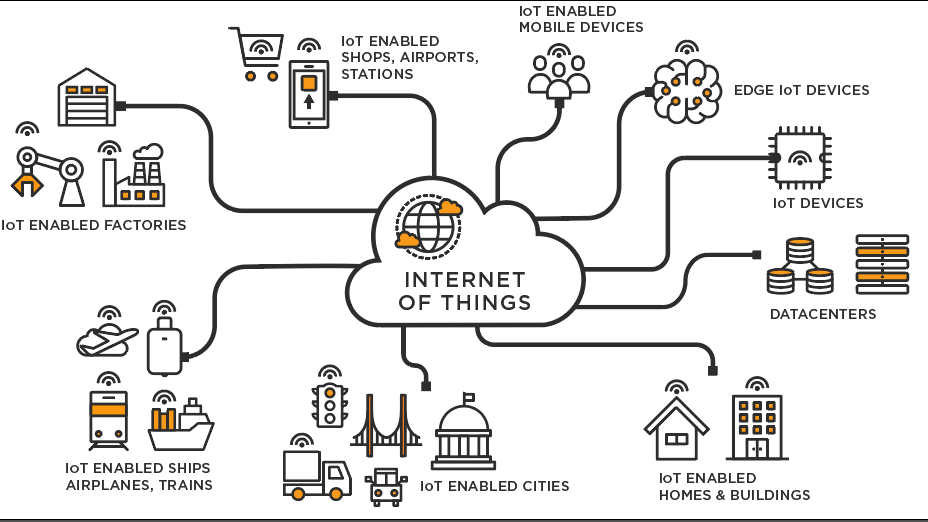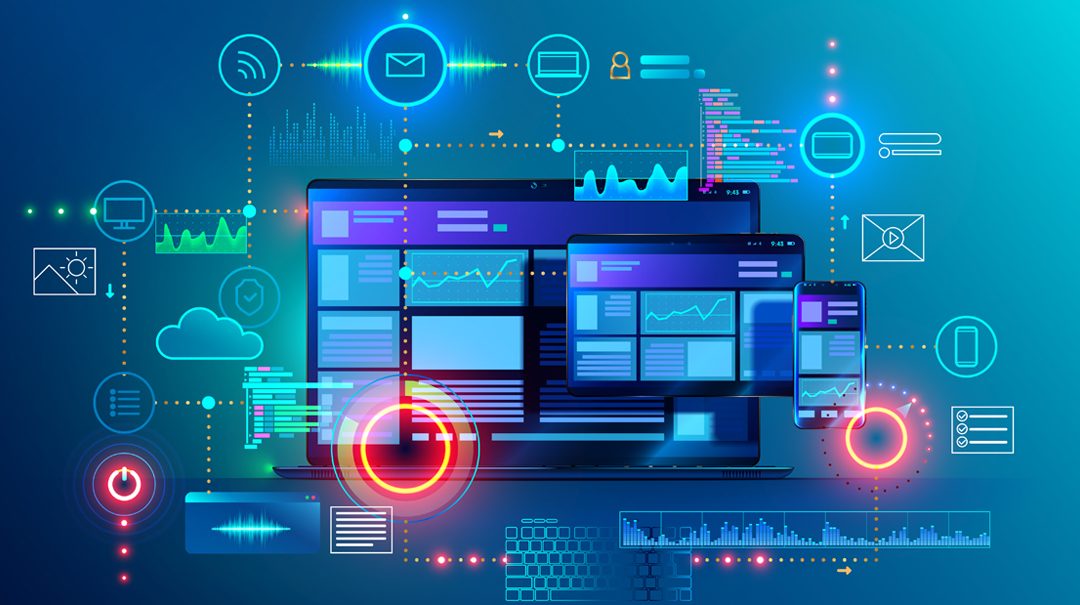- Introduction
- Benefits of ERP Integration for eCommerce Operations
- Key Considerations Before Integrating ERP with eCommerce
- The Process of Integrating ERP with an eCommerce Platform
- Future Trends in ERP and eCommerce Collaboration
- Conclusion
- Frequently Asked Questions (FAQs)
Table of Contents
ERP Integration: Streamlining Operations for Enterprise eCommerce

Introduction
To enhance the efficiency of the services, improve customer services and attract new prospects, every enterprise e-commerce is seeking opportunities and ways to streamline their organizational operations.
Tech visionaries have introduced a solution to help enterprise e-commerce businesses thrive in this competitive landscape. Enterprise Resource Planning System or ERP can become the one and only solution for the challenges faced by entrepreneurs.
By integrated ERP system in enterprise e-commerce, you will not only be able to upgrade technologies in the organization, but you will also be able to manage real-time data, workflows within the organization, optimize operations, and drive growth for your business.
In this article, we will discuss how you can streamline your enterprise e-commerce operations by integrating an Enterprise Resource Planning system.
Benefits of ERP Integration for eCommerce Operations
The integration of an ERP system with an enterprise e-commerce platform can propel a business to new heights of operational efficiency and customer service excellence. Below, we delve into some of the primary benefits of this powerful synergy.
Real-Time Data Synchronization

One of the most significant benefits of an integrated ERP system with e-commerce operations is real-time data synchronization. This ensures that the information between the online store and the backend financial and inventory systems is always up-to-date.
For instance, when a customer orders, the inventory levels are automatically adjusted in the ERP system of the enterprise e-commerce platform, sales data is instantaneously recorded, and customer details are updated or captured, eliminating delays and data inaccuracies.
Streamlined Inventory and Order Management

Effective inventory and order management are vital for any enterprise e-commerce business.
Integrated ERP system automates these processes, allowing for a more efficient workflow. Inventory levels are updated in real time, mitigating the risks of overselling or running out of stock. This is crucial for maintaining customer trust and brand reputation.
Automated Order Processing
Automated order processing minimizes the potential for human error and speeds up order fulfillment.
With integrated ERP systems, businesses can oversee their inventory across multiple warehouses or locations, predict inventory needs, and automate restocking orders, contributing to a more streamlined operation.
Enhanced Accuracy in Financial Reporting
Financial data is the cornerstone of strategic business planning and decision-making. An enterprise e-commerce development ERP system significantly improves the accuracy of financial reporting by automating data collection and compilation.
Benefits of ERP in Financial Reporting
The integration with enterprise e-commerce ensures that every transaction from the enterprise eCommerce platform is reflected in the integrated ERP system, leading to precise revenue tracking, expense management, and profit analysis.
Businesses benefit from reliable financial reports that comply with accounting standards and regulations by eliminating manual data entry and its associated errors. Accurate financial reporting also aids in more informed decision-making, allowing businesses to monitor their financial health in real time and adjust as needed.
Suggested Reading: Must-Have Features of Enterprise Ecommerce Solutions
Key Considerations Before Integrating ERP with eCommerce
Integrating an Enterprise Resource Planning (ERP) system with an enterprise e-commerce platform is a strategic decision that can propel a business toward streamlined operations and enhanced customer satisfaction.
However, several key considerations must be meticulously evaluated to ensure the integration's success and maximize its benefits.
1. Aligning Business Goals with Integration Capabilities
Before embarking on the integration journey with enterprise e-commerce, it's essential to clearly define the business goals you aim to achieve through this endeavor. These goals range from improving order fulfillment speeds enhancing inventory management, to achieving real-time financial reporting.
Once the goals are laid out, assess the capabilities of the integrated ERP system to ensure it can meet these expectations. This alignment is critical as it helps in selecting an ERP system that complements your enterprise e-commerce operations and facilitates achieving your business objectives.
Ensure the integrated ERP system is scalable and adaptable to future business needs, market demands, and technological advancements.
2. Evaluating Existing Infrastructure and Processes
A thorough evaluation of the current business infrastructure, processes, and enterprise resource planning system is paramount. This encompasses the technology stack, data management practices, inventory management systems, customer service operations, and financial reporting mechanisms.
Understanding the strengths and shortcomings of the existing setup is crucial in identifying the areas that require improvement or a complete overhaul. This evaluation provides a clear picture of the necessary integrations, customizations, or updates required to facilitate a seamless ERP and enterprise e-commerce integration.
3. Choosing the Right ERP System That Fits Your eCommerce Needs

Selecting an integrated ERP system is the most critical step in the integration process. The chosen system should not only align with current enterprise e-commerce needs but also possess the flexibility to adapt to future growth and changes in business models.
Consider factors such as the system's compatibility with existing enterprise e-commerce platforms, its ability to handle your specific inventory and order management needs, the quality of financial reporting tools, and its scalability.
Additionally, evaluate the vendor's support services, the system's ease of use, and the community or ecosystem surrounding the integrated ERP system. It may also be beneficial to seek testimonials or case studies from businesses in similar industries that successfully integrated ERP systems with their enterprise e-commerce operations.
The Process of Integrating ERP with an eCommerce Platform
Integrating an ERP (Enterprise Resource Planning) system with an enterprise e-commerce platform is a strategic decision that can streamline operations, enhance customer experience, and provide invaluable insights for decision-making.
To ensure a successful integration, following a structured approach, being aware of potential challenges, and adhering to best practices are important.
Step-by-Step Approach to Integration
Here are step-by-step processes for integrating enterprise e-commerce development ERP systems.
Define Clear Objectives

Establish what you aim to achieve with the integrated ERP system: real-time inventory updates, streamlined order management, or improved financial reporting.
Evaluate and Plan
Assess your current systems and processes of your enterprise resource planning system. Determine if your integrated ERP system within the enterprise e-commerce platforms is compatible or if upgrades/new solutions are needed. Plan the integration thoroughly, including timelines and resource allocation.
Choose the Right Partner
Select an integration partner or software that aligns with your needs. Consider factors like experience, support, and compatibility with your current systems.
Map Data and Processes
Identify how data will flow between the ERP and enterprise eCommerce systems. This includes deciding on the data to be synchronized, such as product information, customer details, and order transactions.
Develop and Test
Develop the integration with testing in mind. Testing should be thorough within the enterprise e-commerce and include all possible use cases to ensure data flows correctly and processes work as intended
Train Your Team
Equip your team with the necessary knowledge and tools to manage the integrated ERP systems effectively in enterprise e-commerce.
Go Live and Monitor
.png?inst-v=9f5e209a-f6b8-401c-8150-89d60456ce99)
Go live with the enterprise e-commerce after rigorous testing. Continuously monitor the integration for issues, performance bottlenecks, and opportunities for optimization.
Suggested Reading: How to Implement Enterprise E-Commerce Solutions Successfully
Common Challenges and How to Overcome Them
You may face some challenges when integrating an Enterprise Resource Planning System into your enterprise e-commerce, and below are the steps to tackle those challenges.
Data Inconsistency
Accurately mapping data fields in your enterprise e-commerce will ensure that both systems can communicate effectively. Regular audits can help maintain data integrity.
System Compatibility
Conduct thorough research and compatibility checks before beginning the integration to ensure your ERP and enterprise e-commerce platform can seamlessly connect.
Change Management
Managing change in the integrated ERP system can be challenging. Involve stakeholders early, communicate changes clearly, and provide adequate training.
Technical Difficulties
Have a skilled technical team on standby. Partnering with service providers who offer robust support can also mitigate this issue in enterprise e-commerce.
Best Practices for a Successful Integration
Follow these practices to get the best out of your integrated ERP system in enterprise e-commerce.
Keep the Customer in Mind
The integration into the enterprise e-commerce platform should ultimately improve the customer experience. Keep customer-related outcomes as core objectives.
Plan for Scalability
Your integration in the enterprise ecommerce development ERP system should meet current needs and be scalable to accommodate future growth and changes.
Focus on Data Security
Ensure data transfer between the integrated ERP system and enterprise e-commerce platform is secure. Implement encryption and regular security audits.
Start with a Pilot
Before a full-scale rollout, conduct a pilot integration with limited data and functionality. This allows you to identify and rectify issues early in enterprise e-commerce.
Continuous Improvement
Technology and business need to evolve. Regularly review and optimize the integrated enterprise resource planning system to ensure it continues to meet business goals.
Successful ERP and enterprise e-commerce integration is a complex but rewarding endeavor. By following a structured approach, being prepared for challenges, and adhering to best practices, businesses can achieve a streamlined operation that enhances efficiency and provides a foundation for growth.
Future Trends in ERP and eCommerce Collaboration
The landscape of integrated ERP systems and enterprise e-commerce integration is rapidly evolving, driven by technological advances and shifting consumer behavior. As businesses strive to stay competitive and meet increasingly complex demands, we are beginning to see several key trends reshaping the way ERP and enterprise e-commerce systems collaborate.
Emerging Technologies
Artificial Intelligence (AI)
AI is poised to transform Enterprise Resource Planning systems and enterprise e-commerce integrations by enabling more personalized customer experiences, predictive analytics for inventory management, and intelligent automation of business processes. AI can help forecast demand, optimize pricing strategies, and provide customer insights that help businesses tailor their offerings.
Blockchain
Blockchain technology offers a secure and transparent way to store and transfer data, which can enhance trust and collaboration between businesses and their suppliers or customers. In Enterprise Resource Planning systems and enterprise e-commerce integrations, blockchain can be used for supply chain traceability, secure transactions, and reducing the incidence of fraud.
Internet of Things (IoT)

IoT devices are finding their way into various aspects of both production and distribution. In warehousing, for example, smart shelves with RFID tags can automatically update inventory levels in the integrated ERP system. In eCommerce, IoT devices can offer real-time tracking for customers and automate reordering based on usage patterns.
Predictions for Future Enhancements
Here are some predictions that can be utilized to enhance the future growth of integrated ERP systems.
Seamless Omni-channel Experiences
As consumers increasingly expect a unified shopping experience across multiple channels, integrated ERP systems in the enterprise e-commerce platforms will integrate more deeply to provide seamless data consistency whether the customer is shopping online, in-app, or in-store.
Real-time Data Analytics

The vast amounts of data generated by integrated ERP systems and enterprise e-commerce systems will be increasingly used in real-time to make more informed business decisions, from inventory management to customer service.
Enhanced Customization and Scalability
The future of integrated ERP systems will likely become even more modular and adaptable, allowing businesses to pick and choose the functionalities they need and scale as they grow.
Automation of Complex Processes
Advanced integrations of the Enterprise Resource Planning system will further automate complex business processes, such as global compliance and tax calculations, freeing up valuable resources to focus on strategic initiatives in enterprise e-commerce.
Conclusion
To conclude, an integrated ERP system can transform your enterprise's e-commerce growth. They offer a wide array of solutions to businesses.
From automating simple yet manual tasks to providing a comprehensive integration of data flows within the organization, you will get every benefit without investing much money.
By utilizing these integrated ERP systems in your enterprise e-commerce, you can easily ditch manual administrative tasks by channeling automation to streamline workflows within your organization. This will increase the efficiency of your employees by allowing them to focus on other important work.
So what are you waiting for? Go and select the best Enterprise Resource Planning system that meets every possible need of your enterprise e-commerce and helps you fuel your journey of growth and prosperity.
Suggested Reading: Maximizing ROI: Strategies for Enterprise eCommerce Growth
Frequently Asked Questions (FAQs)
What is ERP integration in the context of enterprise e-commerce?
ERP (Enterprise Resource Planning) integration in enterprise e-commerce involves synchronizing eCommerce platforms with ERP software to automate and streamline business processes.
This integration covers various operational areas, such as inventory management, order processing, customer relationship management, and financials, ensuring that all systems work cohesively to enhance efficiency, accuracy, and customer service.
How does ERP integration benefit an enterprise e-commerce business?
ERP integration offers numerous benefits to enterprise e-commerce businesses, including improved inventory management, efficient order processing, real-time data visibility, enhanced customer satisfaction, and reduced operational costs.
Automating and synchronizing data across systems allows businesses to operate more efficiently, make informed decisions quickly, and provide better customer service.
What challenges might a business face during Enterprise Resource Planning system integration?
Challenges in ERP integration can include data inconsistency, system compatibility issues, high implementation costs, and complexity in managing change within the organization.
Additionally, aligning the new integrated system with the business's existing processes and ensuring all stakeholders are adequately trained can pose significant challenges.
Can ERP integration improve customer experience?
Yes, ERP integration in enterprise e-commerce can significantly improve the customer experience by ensuring accurate inventory levels, streamlining the order fulfillment process, and providing timely and accurate information to customers. This leads to faster delivery times, fewer backorders, and improved communication, all contributing to a positive customer experience.
Table of Contents
- Introduction
- Benefits of ERP Integration for eCommerce Operations
- Key Considerations Before Integrating ERP with eCommerce
- The Process of Integrating ERP with an eCommerce Platform
- Future Trends in ERP and eCommerce Collaboration
- Conclusion
- Frequently Asked Questions (FAQs)


